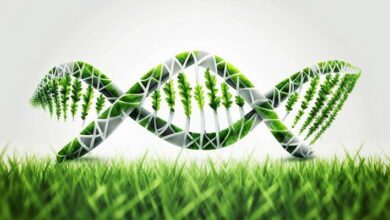Phylogenetics and Evolutionary Relationships MCQs with Answers

Welcome to the Phylogenetics and Evolutionary Relationships MCQs with Answers. In this post, we have shared Phylogenetics and Evolutionary Relationships Online Test for different competitive exams. Find practice Phylogenetics and Evolutionary Relationships Practice Questions with answers in Biology Tests exams here. Each question offers a chance to enhance your knowledge regarding Phylogenetics and Evolutionary Relationships.
| That part of biology, which connects the study of how organisms evolve besides their relations, is known as phylogenetics. This area reconstructs the evolutionary history and species relationships through analyses carried out from genetic, morphological, and biochemical data. Besides explaining how different organisms share common ancestry, it explains their evolution over time. Evolutionary relationships usually are represented as phylogenetic trees or cladograms and have reconstructed the patterns of branching of evolution. Trees show how species- or populations of species-have diverged over geological time from their common ancestors. Trees enable one to infer the sequence of evolutionary events and the relative timing of speciation events. Molecular phylogenetics aims to trace through the course of evolution of species through DNA and protein sequences. Advances in genomics and bioinformatics have made filling in detailed genetic information relatively easier in constructing accurate phylogenetic trees. Apart from tracing the evolutionary history, phylogenetics further aids in the description of species classification and taxonomy. It may also reveal many relationships; for instance, there may be ancestors in common for mammals or it might establish some relationship between plants and fungi on their basis of evolution. |
Phylogenetics and Evolutionary Relationships Online Quiz
By presenting 3 options to choose from, Phylogenetics and Evolutionary Relationships Quiz which cover a wide range of topics and levels of difficulty, making them adaptable to various learning objectives and preferences. You will have to read all the given answers of Phylogenetics and Evolutionary Relationships Questions and Answers and click over the correct answer.
- Test Name: Phylogenetics and Evolutionary Relationships MCQ Quiz Practice
- Type: Quiz Test
- Total Questions: 40
- Total Marks: 40
- Time: 40 minutes
Note: Answer of the questions will change randomly each time you start the test. Practice each quiz test at least 3 times if you want to secure High Marks. Once you are finished, click the View Results button. If any answer looks wrong to you in Quizzes. simply click on question and comment below that question. so that we can update the answer in the quiz section.
Download Certificate of Quiz Phylogenetics and Evolutionary Relationships
On the end of Quiz, you can download the certificate of the quiz if you got more than 70% marks. Add a certificate to your job application or social profile (like LinkedIn) and get more job offers.
If you are interested to enhance your knowledge regarding English, Physics, Chemistry, and Computer please click on the link of each category, you will be redirected to dedicated website for each category.




